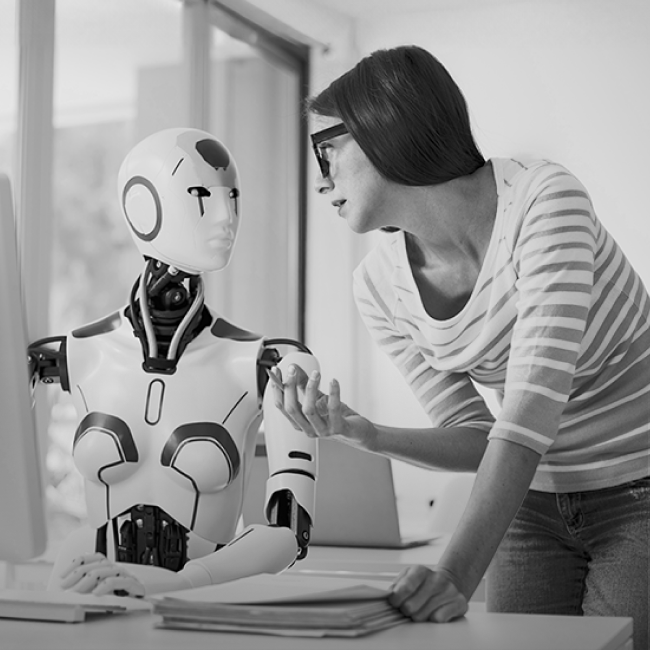In the epoch of Generative AI, where algorithms wield creative prowess and decision-making is augmented by machine intelligence, the trajectory of industries is being fundamentally reshaped. CEOs affirm its strategic impact, yet amid the technological fervor lies a critical challenge: the scarcity of skilled individuals capable of navigating the complexities of Generative AI.
This article delves into the core facets of this transformative landscape, unraveling the symbiotic relationship between technical proficiency and soft skills. We will explore the convergence of human and artificial intelligence into a paradigm shift, demanding a holistic approach to education, training, and workforce development.
Generative AI
According to a recent report by Digital Engineering 247, the revenue generated by Generative AI is expected to grow from $1.8 billion in 2022 to $33 billion in 2027 at a CAGR of 80%.
However impressive is growth, it’s important to note that the power of Generative AI is not just limited to its revenue generation potential. Generative AI has the potential to revolutionize the way we work and live by automating repetitive tasks, generating creative content, and making complex decisions. It can be a massive contributor to solutioning some of the most urgent global issues, including but not limited to climate change, healthcare, and education.
IBM’s Institute for Business Value 2024 report reveals that 43% of the interviewed CEOs admitted their enterprises are already using generative AI to inform strategic decisions, and 36% are using AI in operational decisions.” At the same time, 72% of business leaders say they’re willing to avoid generative AI benefits due to ethical concerns, and 69% expect a regulatory fine due to generative AI adoption. At the intersection of these 2 trends, there’s a common denominator, and that is people.
The imperative for skilled Generative AI practitioners
The increasing integration of Generative AI highlights a pressing need for skilled professionals. However, a shortage of individuals versed in Generative AI poses a significant challenge.
Educational institutions are adapting by incorporating Generative AI courses, aiming to equip students and professionals with essential technical knowledge. Collaboration between industries and educational institutions is crucial to streamline curriculum design and align graduates with real-world applications.
Recognizing the skills gap in the existing workforce, companies are urged to provide proactive training programs in Generative AI. This investment in continuous education ensures competitiveness in a rapidly evolving job market. Whether through in-house training or collaborations with external providers, tailored programs address the demand for skilled Generative AI practitioners across organizations.
Investing in soft skills for the AI era
Forbes signals that “as it becomes increasingly feasible to automate technical aspects of work – coding, research, or data management – the ability to leverage soft skills for tasks that still require a human touch becomes critical.”
Soft skills such as creativity, critical thinking, and effective communication are bound to become essential for professional success. Contrary to the misconception that technical skills alone suffice, a balanced skill set is crucial for navigating ethical considerations, fostering innovation, and addressing the broader societal impact of AI.
Companies are recognizing this need and investing in integrated training programs that not only provide technical expertise in Generative AI, but also focus on cultivating essential soft skills. The commitment to continuous learning ensures that the workforce remains agile, adaptable, and well-equipped to succeed in the AI era.
Bridge the gap: integrate technical and soft skills training
Coherent strategies are needed in order to create a well-rounded workforce that can effectively integrate technical expertise and soft skills in the dynamic landscape of Generative AI and advanced technologies.
Some of these strategies could include:
- Holistic training approach: emphasizing the need for a holistic training approach that integrates technical and soft skills, recognizing their interconnected nature.
- Interdisciplinary curriculum design: advocating for the redesign of curricula, incorporating interdisciplinary programs that blend technical courses with communication, teamwork, and ethical modules.
- Project-Based learning opportunities: highlighting the effectiveness of project-based learning to allow individuals to apply technical knowledge while developing collaboration, communication, and problem-solving skills.
- Mentorship programs: focusing on the role of mentorship in guiding learners to master technical intricacies and understand the nuances of effective communication, leadership, and ethical decision-making.
- Continuous feedback and evaluation: promoting the importance of regular assessments measuring both technical competence and soft skills, creating an iterative feedback loop for continuous improvement.
In essence, the successful adoption of Generative AI hinges on a harmonious blend of technological acumen and interpersonal finesse. As we navigate this transformative journey, the synergy between technical and soft skills will not only drive innovation but also ensure a workforce that adapts, collaborates, and contributes ethically to a future shaped by the profound capabilities of Generative AI.
This article has been created with the help of ChatGPT and carefully edited by our marketing team.



No Comments